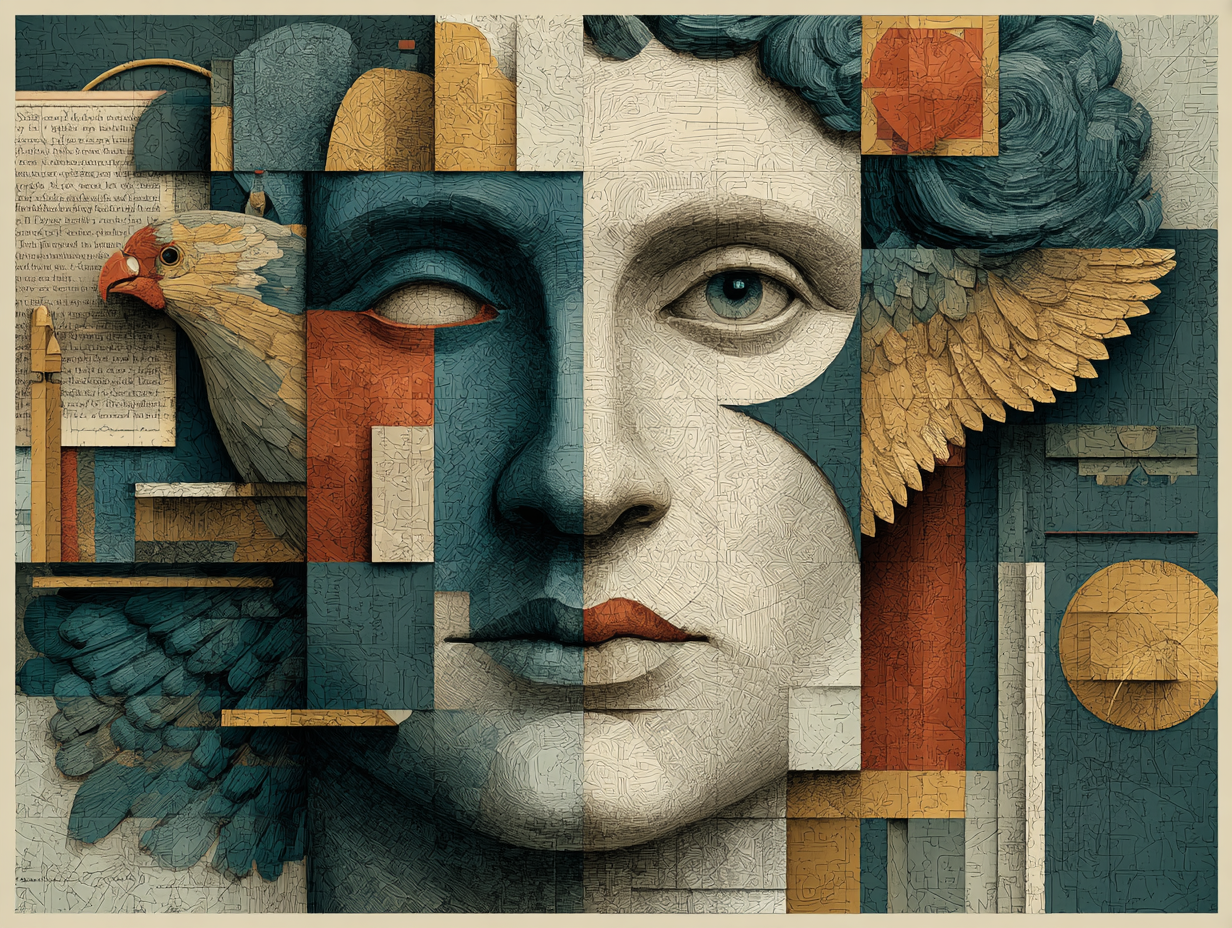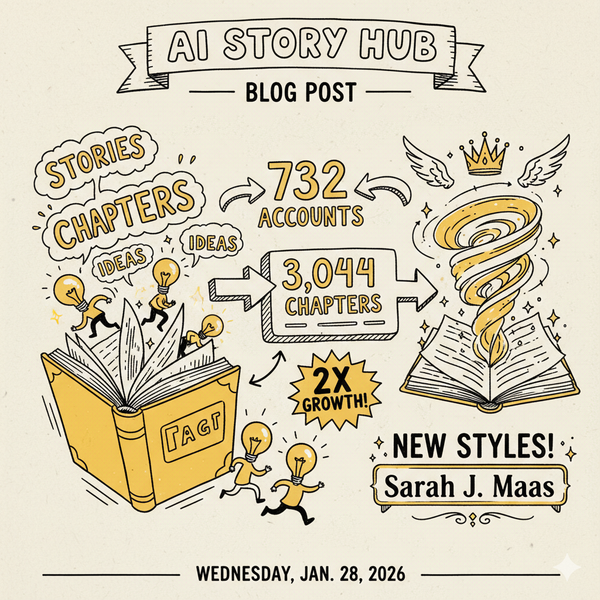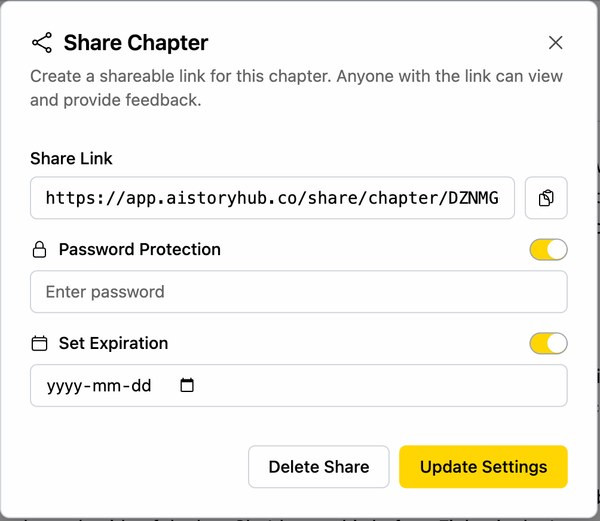The Centaur Author: How to Thrive as a Writer in the Age of AI
This technological shift is not a threat to your identity as a writer; it is an invitation to evolve it. It asks you to move from being a laborer of words to an architect of worlds, a director of possibilities, a curator of meaning... The future belongs to the Centaur.

The conversation around Artificial Intelligence and creativity has become a crisis of identity. We are asking the wrong questions. It is not a matter of if AI will change writing, but a matter of how it will change the writer.
The current discourse is trapped between two false prophecies. On one side, the technoutopians promise a frictionless future where you simply whisper a premise and a finished novel appears, perfectly formed. On the other, the digital luddites warn of an artistic apocalypse where human creativity is rendered obsolete, our stories flattened into a homogenous slurry of algorithmically-generated content.
Both visions are profoundly unimaginative. They fail to grasp the fundamental nature of art and the true potential of a transformative tool. They see technology as an endpoint, either salvation or damnation, when it is, and has always been, a catalyst. They see a future of replacement when they should be seeing a future of collaboration.
The future of writing isn't Human vs. AI. It's Human + AI. The future belongs to the Centaur Author.
Defining the Centaur: A New Skill, Not Just a New Tool
In the world of chess, the concept of a "centaur" emerged when grandmasters realized that a human player paired with a powerful chess engine could consistently outperform either a human or an AI playing alone. But the story doesn't end there. A new form of competition, "freestyle chess," was born where these human-AI teams competed against each other. What they discovered was that the winning team wasn't necessarily the one with the best human grandmaster or the most powerful computer. The winner was the team that had perfected the art of collaboration itself.
This is the model for the next generation of great storytellers. It’s not enough to simply have access to a tool. The Centaur Author is a hybrid creator who has mastered the new skill of creative partnership. The human is the heart, the soul, the guiding intelligence of the operation. The AI is the tireless engine, the flawless librarian, the powerful executor of the human's vision.
The human asks the essential questions: Why does this story need to be told? What does it mean? How should it feel? The AI, given the right direction, handles the logistics and expands the field of possibility: How do we maintain consistency across 400 pages? What are ten different ways this scene could play out? What patterns exist in this character's dialogue that the author might not even see?
At AI Story Hub, we haven’t just built a writing tool. We’ve built the saddle, the reins, and the training ground for this new discipline.
The Human as a Source of 'Creative Gravity'
In this partnership, the human writer's role becomes more focused and, arguably, more profound. You are no longer just a laborer of words; you are the source of the story's "gravity," the fundamental force that pulls every element into a meaningful shape.
1. Intent and Theme: An AI can generate a plot, but it cannot decide what a story is about. It cannot infuse a narrative with a resonant theme, a moral core, or a unique perspective on the human condition. That is the sole domain of the author. You are the one who decides if your story is a critique of power, a celebration of found family, or a meditation on loss.
2. Voice and Style: While an AI can mimic styles, only the author can invent one. Your fingerprint is your unique voice, the rhythm of your prose, your choice of metaphors, and the specific lens through which you see the world. In AI Story Hub, features like config.writingstyle and config.tone aren't meant to create a voice for you; they are there for you to teach the AI your voice, so it can harmonize with your vision instead of overpowering it.
3. Asking Better Questions: The skill of "prompting" is often misunderstood as giving commands. For the Centaur Author, it is a Socratic dialogue. It's not just "write a scene," but "Show me this character's courage by having them perform an act of quiet defiance, not overt heroism." The quality of the AI's output is a direct reflection of the depth and subtlety of the human's query.
4. Emotional Judgment: An AI can be programmed to identify emotional beats, but it cannot feel them. You are the final arbiter of what works. You are the one who can read a perfectly structured scene and know, in your gut, that it lacks soul. You are the one who can sense when a line of dialogue is technically correct but emotionally false. This instinct, honed over a lifetime of human experience, is irreplaceable.
The AI as a 'Possibility Engine'
If the human provides the gravity, the AI provides the universe for that gravity to act upon. It is a "possibility engine," expanding your creative horizons and revealing paths you may not have found on your own.
1. Flawless Memory: The human mind is brilliant, but it's a terrible filing cabinet. Did you say your hero's eyes were blue or green in Chapter 2? For a human, tracking this is exhausting. For the AI in AI Story Hub, it's effortless. By using Reference Elements and Arc Points, you are essentially giving the AI a perfect, dynamic memory of your entire universe. It never forgets a scar, a promise, or a rule of your world, ensuring bulletproof consistency.
2. Revealing Your Blind Spots: Every writer has stylistic tics and narrative ruts. You might overuse a certain sentence structure or subconsciously make all your villains monologue. A good AI partner can act as a mirror, analyzing your work and highlighting patterns you didn't know existed, giving you a chance to consciously improve your craft.
3. Defeating the Blank Page: The terror of a blank page is real. The AI excels at turning your intent into a solid starting point. With a tool like Generative AI 2.0, you aren't asking the AI to "write a story." You are giving it a highly specific brief: "Write this scene, referencing this character's 'Broken but Resolute' Arc Point, with the goal of revealing this secret." It provides the clay—a well-formed first draft—so you can immediately begin the true work of sculpting.
4. Exploring Possibilities: "What if my protagonist made a different choice?" In traditional writing, exploring that question might mean weeks of wasted work. With a feature like Version Control, you can create a "branch," live out that alternate timeline for a few chapters, and see where it goes—all without any risk to your main narrative. The AI empowers you to take creative risks by eliminating the consequences of experimentation.
Conclusion: The Author is Not a Function. The Author is a Choice.
Let go of the fear of replacement. That fear is rooted in the idea that an author is merely a function, a text producer. But that has never been true. A machine can produce text, but only a human can make the thousand choices that infuse that text with meaning.
This technological shift is not a threat to your identity as a writer; it is an invitation to evolve it. It asks you to move from being a laborer of words to an architect of worlds, a director of possibilities, a curator of meaning. The tools are becoming more powerful, the engines faster, and the memory is becoming more perfect. However, the person in the saddle, choosing the destination, feeling the terrain, and deciding why the journey matters, remains the most important part of the equation.
The future doesn't belong to the AI. The future belongs to the Centaur. The future belongs to you.




